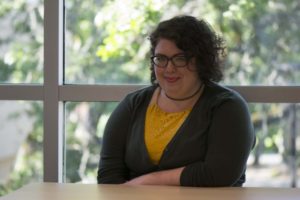Camosun is currently working on their Education Policy Renewal and Framework Initiative, which aims to address the current educational policy priorities of the college.
It’s been approximately eight years since the college has had dedicated policy resources, something that Camosun Vice President of Education John Boraas says has been a result of budget cuts.
“We really haven’t had much policy work at the college for many years,” says Boraas. “So what we’ve wanted to do, really, is begin to build our entire policy structure, with the voice of students much more involved.”

The initial stages of the initiative have involved consultations with various members of the college community—including students—to determine what policies stand out as high priority. The initiative is coinciding with some financial leeway, according to Boraas, which will allow the college to invest in resources as well as policy creation.
“It’s timed with the ability for us to do some investments in different parts of the college,” says Boraas. “Our policy priorities can be paired up with adding resources we need to do things differently, so I’m pretty excited.”
Camosun College Student Society External Executive Rachael Grant is also a member of the Camosun College Policy and Standards sub-committee and has been part of the consultation process. She hopes to see this initiative positively impact the student experience at Camosun.
“Throughout this whole process of consultation, we’ve come across all these issues that students face that haven’t really been discussed as thoroughly as they could have been,” says Grant. “All these really important issues are coming up because of this consultation, and some of it will be addressed in policy and some of it will be looking at practices, and I just hope to see this transfer to a really tangible benefit for Camosun students in how they navigate postsecondary.”
The college says that a strategic role of policy and policy development is being able to put organizational values and principles into practice. To accomplish this, the student voice is essential, according to Boraas.
“I’ve always believed in going after the voice of students, but I have to admit it does get lost sometimes as we hurry to get things done,” says Boraas. “So it’s really a chance for us to do things based on what our values actually are, to build processes that invite the student voice in.”
This initiative—which is expected to be ongoing over the next six or seven years—is geared toward creating an institution with a focus on the learning experience of students, according to Boraas.
“We really want all of this work to be done through the lens of student success and the student experience,” he says. “So we are wanting to take a really progressive student-centric approach to how we look at all of our policies.”
Grant says that this is a chance to make a difference in terms of student experience, and there is a hope that more students will participate in this active policy rewrite.
“The college is so eager to have student representation on the [Policy and Standards] sub-committee, and it is such an amazing opportunity; this doesn’t happen often and has such amazing long-term impacts,” says Grant. “Whether you realize it or not, we interface with policy all the time. When you were admitted into Camosun College, that was you interacting with policy, and it impacts every student, so it’s a way that you can contribute for students now and for students years from now. I would highly recommend it if you have the time and the energy to put your two cents in because it’s definitely worth it.”
